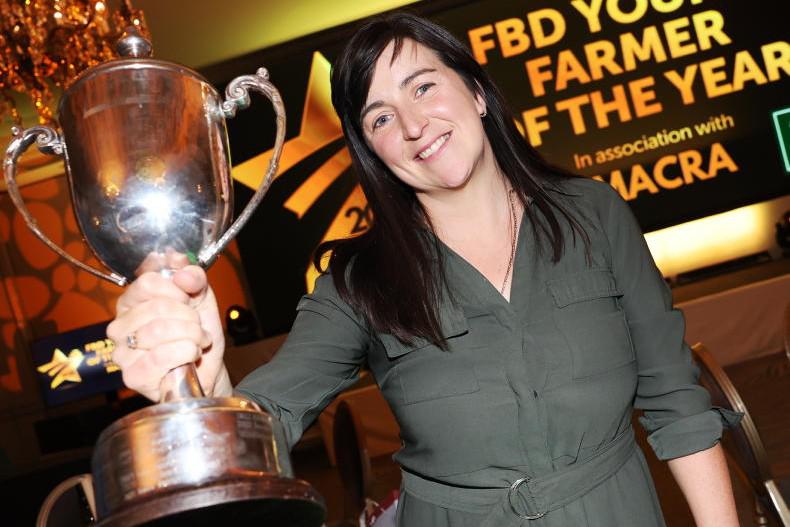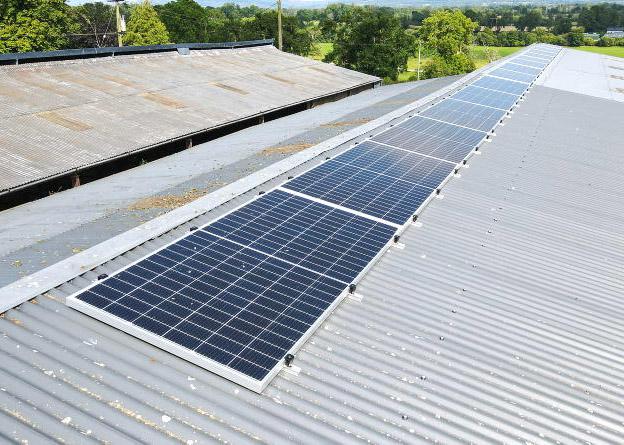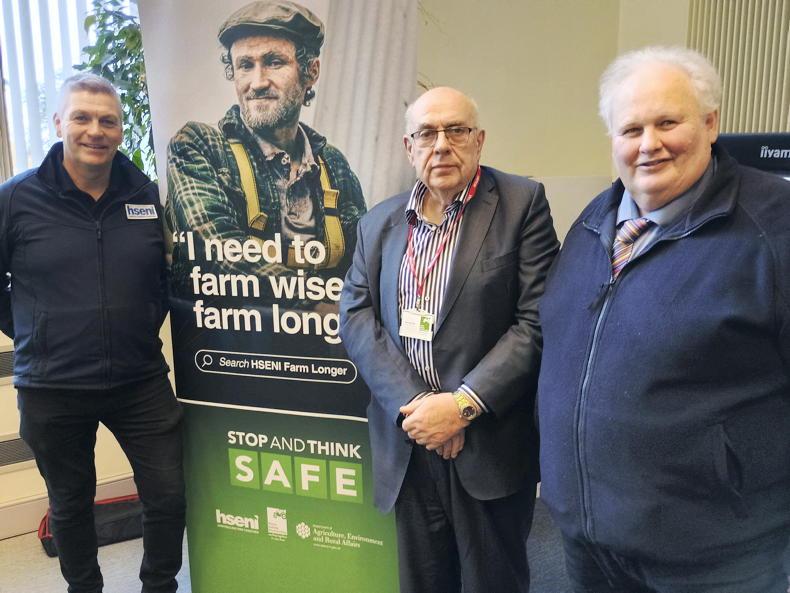Farmer discussion groups are being urged to put farm safety to the top of their agendas in 2021 by Teagasc health and safety specialist Dr John McNamara.
Speaking to the Irish Farmers Journal about new research on discussion groups and farm safety, he said that it’s proven that discussion groups improve uptake in technology and practices.
“Now we’re looking to see if we could get a better model for farm safety adoption,” he said.
The four-year study was carried out by Dr Tracey O’Connor, a recent doctoral Teagasc Walsh scholar sponsored jointly by Teagasc and the Health and Safety Authority.
Research
The research, carried out on 96 dairy discussion groups, found that most groups (96%) discussed health and safety on farms to some extent.
It found that 89% of discussion groups shared their personal experiences of accidents and illnesses with their discussion group and 82% shared close calls on farms.
Some 76 of the groups addressed specific hazard and risk management topics at least once at meetings during the year.
The majority of discussion groups focused on health and safety protection strategies that are closely aligned with causes of fatal farm accidents.
However, a number of important issues such as chronic illness-related issues receive limited attention, according to Dr O’Connor.
Dr O’Connor said that farmer discussion works when health and safety issues are raised and farmers have space to share practical solutions, which, in turn, can motivate increased health and safety action among participating farmers.
The study
Two discussion approaches addressing four health and safety topics were examined, one in which the groups discussed all the topics in a single group meeting and the other in which groups covered each topic for a short period of about 20 minutes at a series of meetings, along with a control treatment where no health and safety topics were discussed.
The study found that both approaches are useful for strengthening farmers’ intentions to work in a safe and healthy way, and action on those intentions.
Between the two approaches, the “little and often” approach was most strongly associated with an increase in action taken to increase safety.
Learning
Dr O’Connor concluded that dairy farmers value discussions around farm health and safety and said the findings show that discussion groups provide a space for farmer-led, peer-to-peer knowledge-sharing for farm safety.
As a result, she said that farmer discussion has considerable potential to increase farmers’ intentions to adopt farm health and safety practices.
McNamara said that there has been 17 deaths this year on farms.
“One is one too many. The real challenge is in the spring when the workload goes up - safety management should be given first priority.
“We’re encouraging discussion groups to put farm safety on the agenda for the year and use the risk assessment document as a source of information. Take one topic at a time,” he said.
Read more
Farmer-led safety scheme launched
Measures under new €5m farm safety scheme revealed
Farmer discussion groups are being urged to put farm safety to the top of their agendas in 2021 by Teagasc health and safety specialist Dr John McNamara.
Speaking to the Irish Farmers Journal about new research on discussion groups and farm safety, he said that it’s proven that discussion groups improve uptake in technology and practices.
“Now we’re looking to see if we could get a better model for farm safety adoption,” he said.
The four-year study was carried out by Dr Tracey O’Connor, a recent doctoral Teagasc Walsh scholar sponsored jointly by Teagasc and the Health and Safety Authority.
Research
The research, carried out on 96 dairy discussion groups, found that most groups (96%) discussed health and safety on farms to some extent.
It found that 89% of discussion groups shared their personal experiences of accidents and illnesses with their discussion group and 82% shared close calls on farms.
Some 76 of the groups addressed specific hazard and risk management topics at least once at meetings during the year.
The majority of discussion groups focused on health and safety protection strategies that are closely aligned with causes of fatal farm accidents.
However, a number of important issues such as chronic illness-related issues receive limited attention, according to Dr O’Connor.
Dr O’Connor said that farmer discussion works when health and safety issues are raised and farmers have space to share practical solutions, which, in turn, can motivate increased health and safety action among participating farmers.
The study
Two discussion approaches addressing four health and safety topics were examined, one in which the groups discussed all the topics in a single group meeting and the other in which groups covered each topic for a short period of about 20 minutes at a series of meetings, along with a control treatment where no health and safety topics were discussed.
The study found that both approaches are useful for strengthening farmers’ intentions to work in a safe and healthy way, and action on those intentions.
Between the two approaches, the “little and often” approach was most strongly associated with an increase in action taken to increase safety.
Learning
Dr O’Connor concluded that dairy farmers value discussions around farm health and safety and said the findings show that discussion groups provide a space for farmer-led, peer-to-peer knowledge-sharing for farm safety.
As a result, she said that farmer discussion has considerable potential to increase farmers’ intentions to adopt farm health and safety practices.
McNamara said that there has been 17 deaths this year on farms.
“One is one too many. The real challenge is in the spring when the workload goes up - safety management should be given first priority.
“We’re encouraging discussion groups to put farm safety on the agenda for the year and use the risk assessment document as a source of information. Take one topic at a time,” he said.
Read more
Farmer-led safety scheme launched
Measures under new €5m farm safety scheme revealed









SHARING OPTIONS